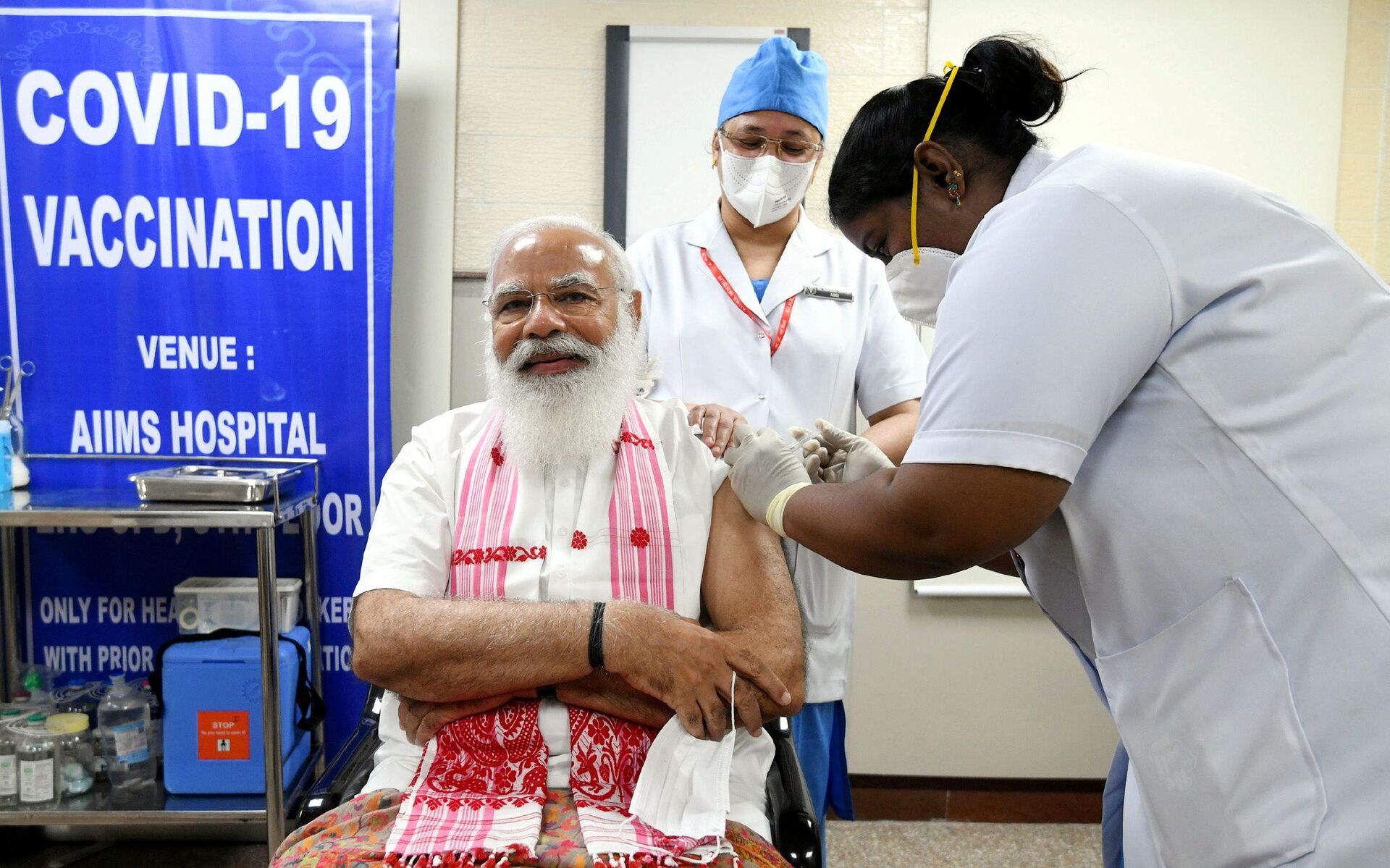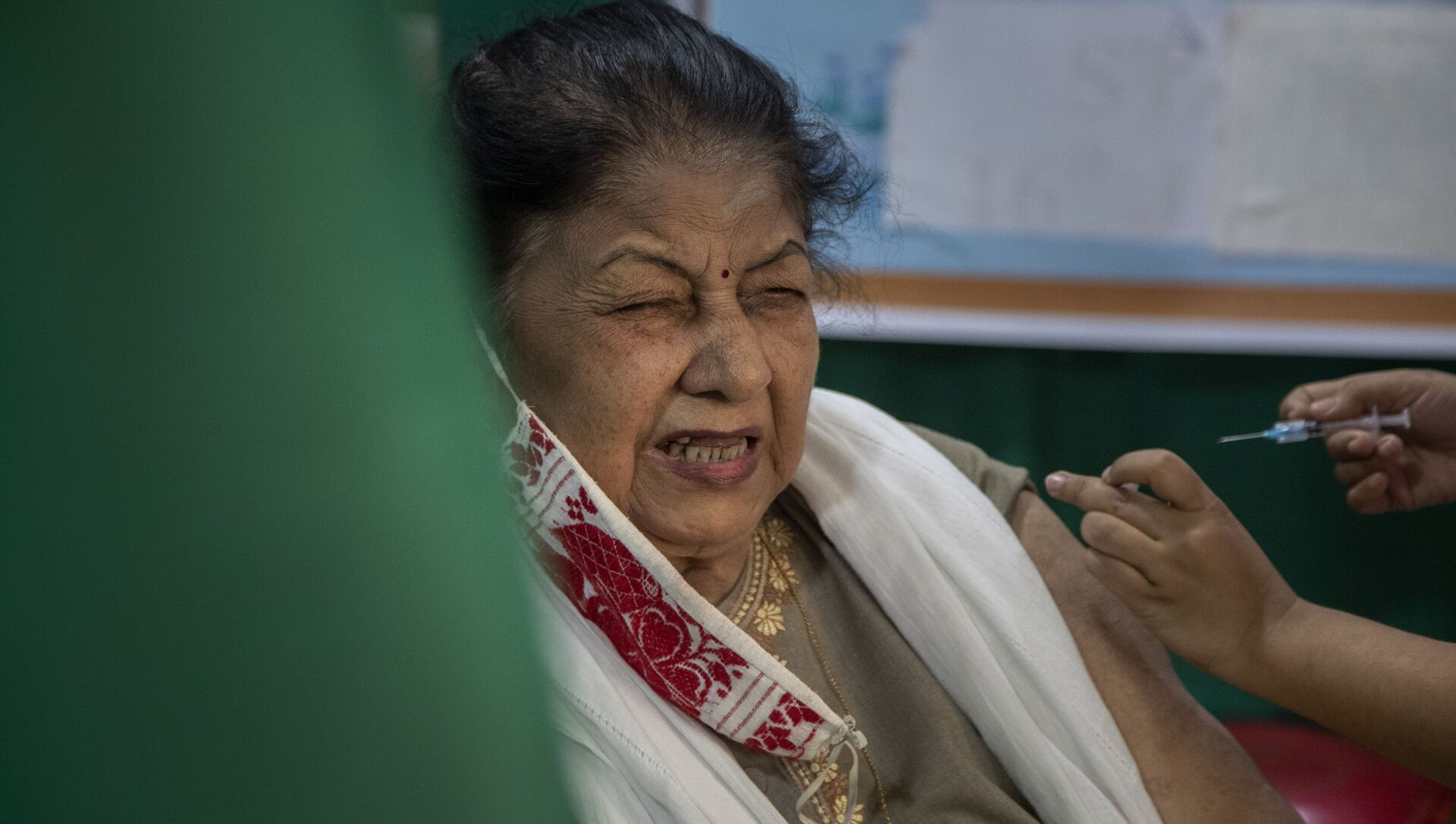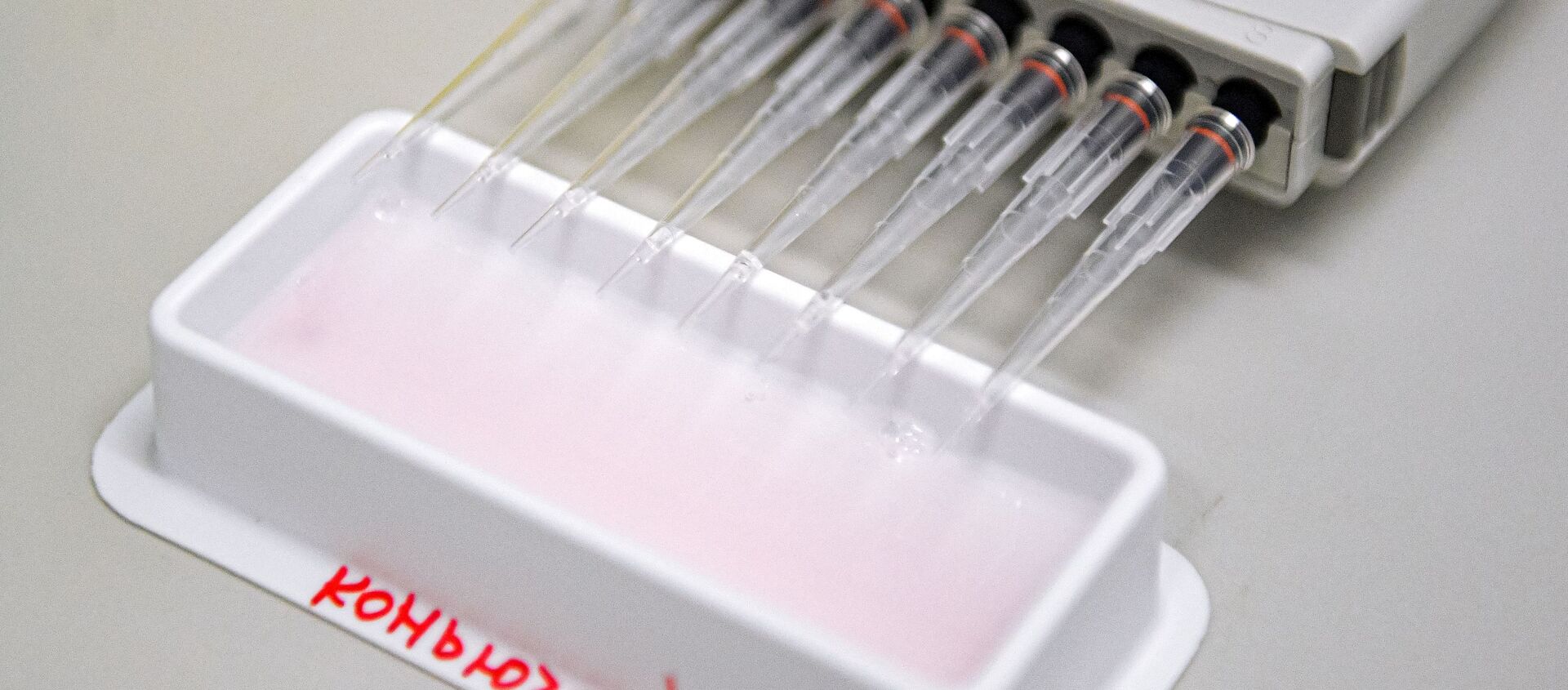An array of rumours about the components and potential side effects of coronavirus vaccines have made it extremely difficult for health workers to carry out their task.
Health workers in Nuh, a city in the Indian state of Haryana about 80 km from New Delhi, have been successful in administering coronavirus vaccines to only a small number of locals so far. They have had to individually plead with each person, sometimes for hours, to convince them to take the jab, all thanks to rumours that the vaccine may lead to infertility.
Another rumour making rounds is that vaccines may contain pork gelatine, the consumption of which is forbidden under Islam.
The district of Nuh has a population of around 100,000. But considering that half of Haryana’s 1.8 million Muslims trace their roots to Nuh, the rumour about the vaccine may have a ripple effect throughout the state.
Government data suggests that around 1,000 people had been inoculated by 12 March in the Nuh, Charkhi Dadri, Jind, and Kaithal districts of Haryana state.
Speaking with Sputnik, Dr Suraj Bhan Kambhoj, director general of the health services of the state, said: “We have been speaking to people at length to curb such misinformation”.
“We have also roped in rural health force workers — one ASHA (Accredited Social Health Activists) worker and an Anganwadi worker [a community-based frontline worker], for every 200 households. They will be going from door-to-door to motivate the beneficiaries to get the doses of the vaccine administered”, Dr Suraj Bhan Kambhoj said.
Last week, the Haryana government decided to start a special programme, particularly in the rural part of the state, in an attempt to crack down on rumours and misinformation about COVID-19 vaccines.
Rajeev Arora, additional health secretary, announced that every Monday will be observed as a "mega vaccination day". Arora also shared that on 15 March, the health department vaccinated 150,000 people in a single day.
“For the past few days, we observed that people were not turning up for vaccination. We have decided to start more vaccination centres in close proximity to people’s residences even in the rural areas”, Arora told Sputnik.

This is not the first time that the Indian public has been hesitant to getting inoculated. Rumours and misinformation have made it extremely difficult for the government in the past to convince people to vaccinate their children.
Sensing such hurdles, the Narendra Modi government asked all the state authorities to take legal action against those responsible for spreading misinformation about COVID vaccines when the vaccination drive kicked off in January. The federal Health Ministry has rolled out a massive nationwide campaign across the country to battle the misinformation.
Despite the initial sluggish response, India has vaccinated more than 34 million people so far with two approved vaccines — Covaxin and Oxford-AstraZeneca’s Covishield — since 16 January.
The Indian Health Ministry claims that it has been maintaining a daily average of around 1.9 million doses, which is well above the requirement of an average of 1.6 million doses per day to achieve the target to vaccinate 300 million people at high risk by July this year.
India has confirmed more than 11 million cases and over 157,000 deaths. The country has recorded the second-highest number of COVID-19 infections in the world after the United States.





